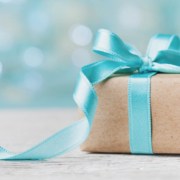Create new habits—at any age
After a cross-country move last fall, I decided to change my long-standing habit of leaving dirty dinner dishes in the sink overnight. For a week or so, I made a conscious effort to clean up after dinner, even when I felt tired. My reward was coming downstairs the next morning and enjoying the clean, bright kitchen: ah! It felt good.
A few weeks later, I was in the middle of scrubbing a pot after dinner when I realized, wow! I am cleaning up automatically now. I didn’t have to remind or force myself to do it. It was as if I were on autopilot—my body did the work while my mind was free to wander about.
Pulitzer-Prize winning Charles Duhigg’s bestselling book, “The Power of Habit” showed me that what I had stumbled into was the creation of a new habit. Habits are powerful because they unconsciously govern behavior and save our brains energy. You probably have good habits, like brushing your teeth before bed, and, if you’re like me, not-so-good habits that you’d like to change. Duhigg’s book empowers anyone—at any age—to choose their habits rather than accumulate them by chance. Just because a bowl of ice cream made you feel really good one night in 1982 doesn’t mean you have to mindlessly eat one every night forever after!
But wait a minute. Aren’t older adults less able to form new habits than younger adults? No! Older adults have a strong advantage: “They know what makes them happy much better than younger people, and once they achieve a change, they don’t go back,” says Duhigg.
So how do you change a habit? Any habit, good or bad, involves three elements: a cue, a routine, and a reward. To change a habit, change the routine. In my example, the cue, finishing dinner, remained the same. It was the routine that changed: I cleaned up instead of leaving a mess (before it became a habit, I had to use my willpower to do this). As for the reward, my old habit had an immediate one: plopping in a chair to watch TV. My new habit had a delayed reward, the joy of waking up to a clean kitchen.
Duhig suggests two ways to boost new habits. Piggybacking on a larger change—the start of a New Year, or even a rearrangement of your living room furniture—can help. In my case, the disruption of moving probably made it easier to start new habits. Associating your new habit with a belief, particularly one that goes beyond yourself, is also powerful. You could use your faith, your love for your family, or a dedication to a cause as motivation to stick to your new habit, particularly in times of stress when it’s tempting to revert to old patterns.
What about you? I hope Duhigg’s research empowers you to engineer any new habits you’d like in 2024, no matter how young or old you are.









